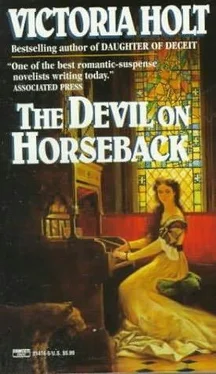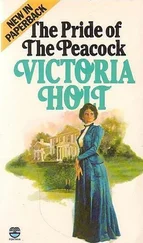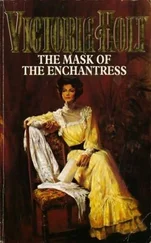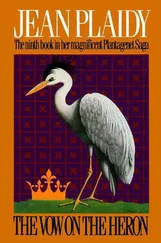Victoria Holt
The Devil On Horseback
It was a sequence of unfortunate events which brought me to the Chateau Silvaine. My father was a sea captain who had gone down with his ship when I was five years old and, having lived in moderate comfort all her life, my mother found herself forced to earn a living for herself and her daughter. A penniless woman, said my mother, must either live through her mop or her needle, unless she has some education which can be turned to good purpose. Being a woman in this category, she had two courses open to her; she could teach the young or be a companion to the elderly; she chose the former of these alternatives. She was a woman of strong character, determined to succeed and, with very little means at her disposal, she rented a small lodge on the estate of Sir John Derringham in Sussex and started a school for young ladies.
For a few years, if it did not exactly flourish, it provided us with the necessities of life. I had been a pupil and had received an excellent education under my mother’s tuition-the inference from the beginning being that, in due course, I should join her as a teacher, which for the last three months I had done.
“There should be a good living for you here, Minella,” my mother used to say.
She had named me Wilhelmina after herself. The name suited her, but I never felt it fitted me as neatly. I had become Minella as a baby and the name had stayed with me.
I think my mother’s main pleasure in the school was the fact that it provided for me. The Derringham girls, Sybil and Maria, were pupils and that meant that other families sent their children. It saved having a governess in the house, they used to say. When visitors came to Derringham Manor and their children were with them, they became temporary pupils. My mother taught manners, deportment, dancing and French in addition to the Three Rs, and this was considered very unusual indeed.
Sir John was a generous and kindly man, eager to help a woman whom he admired as he did my mother. He had extensive lands watered by a small but very beautiful river in which trout flourished. Many rich people-some from the! Court-used to come to stay at the Manor for the fishing, pheasant shoots or to ride and hunt. These seasons were? important to us, because the fame of my mother’s school had I spread through Sir John’s circles, and families, who liked to have their children with them, brought them, and as my mother’s school was warmly recommended by Sir John, they were delighted to make use of it. These children who came to us for brief periods were, as my mother used to say in her downright way, the preserve on our bread. We could live on thej long-term pupils, but naturally higher fees were asked for temporary tuition so they were very welcome. I was sure Sir John knew this and it was why he took such pleasure in bringing them to us.
There came a day which was to prove significant in my life. This was when the French family of Fontaine Delibes came to stay at Derringham Manor. The Comte Fontaine Delibes was a man to whom I took an instant dislike. He seemed not only haughty and arrogant, but set himself apart from all other human beings on account of his superiority in every way. The Comtesse was different, but one saw very little of her.
She must have been beautiful in her youth not that she was old at this time, but in my immaturity I thought everyone over thirty old.
Margot at this time was sixteen years old. I was eighteen. I heard later that Margot had been born a year after the marriage of the Comte and Comtesse, when the latter was only seventeen years old herself. In fact, I discovered a good deal about the marriage from Margot who had, of course, been sent to our school through the kindly Sir John.
Margot and I were drawn together from the first. It might have been due to the fact that I had a natural aptitude for language and could chatter away with her in French with greater ease even than my mother (though she was more grammatical) and than Sybil and Maria whose progress in that language, said my mother, resembled that of a tortoise rather than a hare.
From our talks emerged the impression that Margot was not sure whether she loved or hated her father. She confessed Derringham Manor her fear of him. He ruled his household in France and the neighbouring countryside (which he appeared to own) like a feudal lord of the Middle Ages. Everyone appeared to be in considerable awe of him. He could at times be quite merry and generous too; but his persistent characteristic seemed to be his unpredictability. Margot told me that he would order a servant to be whipped one day and give that servant a purse of money the next. Not that the two incidents would have anything to do with each other. He never regretted any cruelty or rarely and his acts of kindness were’ not done out of remorse.
“Only once,” said Margot mysteriously, and when I tried to probe would say no more. She added with some pride that her father was referred to as Le D table (behind his back, of course).
He was very handsome in a dark satanic way. His looks fitted what I had heard of him. I saw him for the first time near the schoolhouse; seated on a black horse he really did look like something out of a legend. The Devil on Horse back, I named him on the spot, and I thought of him by that name for a long time. He was magnificently dressed. The French were, of course, exceptionally elegant, and although Sir John was a man who presented an immaculate appearance to the world, he could not compare with the Devil Count. The Devil’s cravat was a froth of exquisite lace, as were the frills at his wrists. His jacket was of bottle green and his riding hat of the same colour. He wore a wig of smooth white hair and diamonds glittered discreetly in the lace at his neck.
He did not notice me so I was able. to stand and stare.
Of course my mother was never a guest at Derringham Manor. Even the liberal minded Sir John would not dream of inviting a schoolmistress to his house, and although he was always polite and considerate (it being his nature to be so), we were naturally not regarded as equals socially.
In spite of this my friendship with Margot was encouraged because the association was thought to be good for her English, and when her parents returned to France Margot’ stayed behind to perfect her knowledge of our tongue. This delighted my mother who had one of her better-paying pupils for a longer period than usual. Margot’s parents-but mostly her father paid brief visits to the Manor now and then and this was one of those occasions when they were there.
Margot and I were constantly together and one day, as i reward, though not to be considered a precedent, I was invited to the Manor to tea that I might spend an hour or so with our pupils. My mother was pleased. After school was closed on the day before the party she was washing and ironing the only gown which she considered suitable for the occasion - a blue linej edged with rather fine lace which had belonged to my father! mother. She was purring with pride as she ironed, certain that her daughter could take her place among the mighty with th utmost ease. Was she not aware of all that was expected o her? Had she not been brought up to behave with poise amoru the exalted? Was she not more soundly educated for her year than any of them? (True. ) Was she not as handsome and well dressed? (A mother’s fondness, I feared, rather than a fact.
Armed with my mother’s confidence in me and my deter ruination to do her credit, I set out. Walking through the pini woods I could not say that I felt any undue excitement. So often had I been in class with Sybil, Maria and Margot, that should be in company to which I was well accustomed. I would merely be a different venue. But when I emerged from the woods and saw the house standing back from those gracious lawns, I could not help feeling a great pleasure at this prospect of entering it. Grey stone walls. Mullioned windows The original house had been reduced to a shell by Cromwell’! men and more or less rebuilt after the Restoration. A Danie Derringham, who had fought in the King’s cause, had been rewarded with a baronetcy and lands.
Читать дальше








